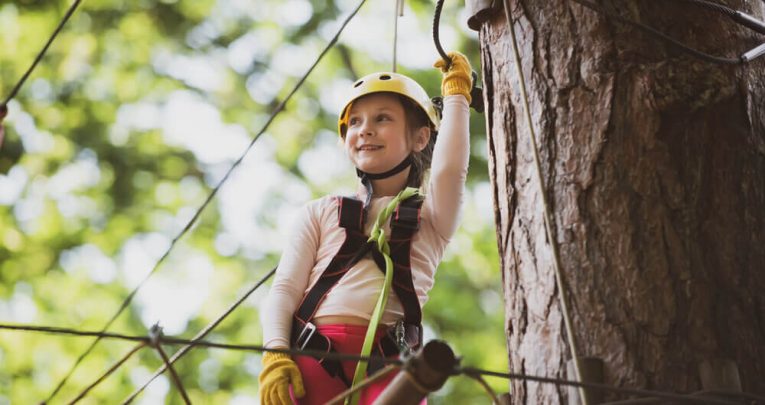School residential trips – a primary teacher’s guide

Pack plastic bags, and don’t EVER say ‘ghost’…
The primary residential: undoubtedly the highlight of school for a lot of children. For staff? Well, it can range from sheer horror at the thought of having to tend to a class in your pyjamas, to absolute delight because you get to have a go at all the things you haven’t attempted since your own residential: Leap of Faith, here I come! There is certainly a lot of fun to be had, but careful planning is a must.
Here are a few hints and tricks to make sure this milestone event is remembered for all the right reasons.
Plan of action
Covering all bases in terms of planning and preparing this military operation is probably the most daunting aspect of organising a residential, but it shouldn’t put anyone off.
These kinds of trips generally need booking quite far in advance – particularly if you have a date in mind in the warmer months. Start by gathering the information needed before any plans are shared with children and parents.
Know what the content of your trip will involve and ensure that the provider sends you all necessary risk assessments – you will need these for most outdoor activities but the good news is, they’ve already been done for you!
Remember to also have something in place to cover any risks associated with transport. After this comes costings: work out how much the trip will cost per child, taking into account accommodation, activities and transport.
Then find out if, and how much, your school is prepared to subsidise. Keep an ongoing document to track deposits and payments towards costs, and use a cashless system to facilitate this if you want to avoid children bringing money into school and dealing with the drama when they’ve lost it on the playground – been there, done that!
I find it useful to make my own plan of action so I know what needs doing and by when (risk assessments, numbers confirmed with provider and deposits paid, etc.) I’d also recommend using your school calendar to display deadlines and alert you (and others involved) when the time draws near.
Wet wipes and plastic bags
Next on the agenda is people organisation. First collect in your confirmed numbers of students wanting to participate and check guidance on the ratio of adults to children (generally 1:10 for KS2).
You will need to know about any medical conditions, medications needed and food requirements, so ensure that you communicate the importance of this with parents and have a log of who needs what and when they need it.
Prepare to be a walking pharmacy as actual medication should be handed to staff in a clear plastic bag with name and dosage information clearly labelled. In addition to this, it is a good idea to send out kit lists in good time so parents can be prepared and make necessary purchases. As a member of staff, wet wipes and plastic bags are a must!
Be clear on expectations prior to the trip, specify what they can and can’t bring (money, electronics, extra snacks) and make sure that this is conveyed to parents.
Whether you use social media or your school’s website, prepare a way to communicate with parents while you’re there because they’ll want to see photographs and know how everyone is.
Safety and sweets
Safety offsite is always a worry for staff. It is helpful to know that classes are generally broken down into smaller groups on a residential so individual staff are responsible for fewer children.
I would recommend having them in pairs at all times and conduct head counts at the start and end of every activity. Know who is in every room/dormitory as there will likely be some squabbling over this and some wanting to swap halfway through after a fall out over sweets or something equally as trivial.
To avoid theatrics, I would advise the tactic of allowing everyone to choose one friend they would like in their rooms and allocate based on how well you know the children and their friendship groups, but don’t give them too many options – let them know which room they are in once they arrive so the buzz of being there takes over.
Despite there being a lot to consider and manage before and during a residential, it is one of the most beneficial things a child can do during their school career. They get to partake in new experiences, challenge themselves and be proud of achievements that aren’t just academic.
Building confidence, self-esteem and teamwork skills are all additional advantages that make the experience so worthwhile and, as a teacher, you get to see a whole new side of the children you think you know so well. You might also find that they have a newfound respect for you, unless you completely embarrass yourself by capsizing a canoe into a duck pond… yes, I did. In the end, everything boils down to allowing children to make memories – with you and with their friends – and it is completely and utterly worth every second of planning and preparation you put in to making it happen for them.
One last thing: if you want any attempt at a full night of sleep, do not under any circumstances, mention the G word (ghost). Be brave, be bold, have fun, and bring extra coffee… just in case!
——————————————————————————————————————————–










